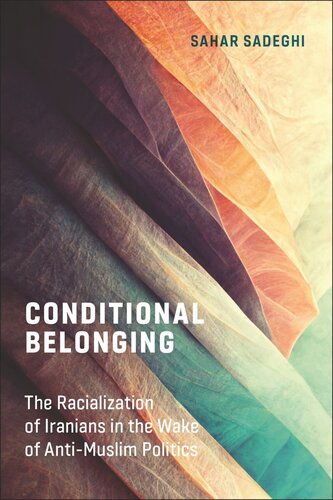

Most ebook files are in PDF format, so you can easily read them using various software such as Foxit Reader or directly on the Google Chrome browser.
Some ebook files are released by publishers in other formats such as .awz, .mobi, .epub, .fb2, etc. You may need to install specific software to read these formats on mobile/PC, such as Calibre.
Please read the tutorial at this link: https://ebookbell.com/faq
We offer FREE conversion to the popular formats you request; however, this may take some time. Therefore, right after payment, please email us, and we will try to provide the service as quickly as possible.
For some exceptional file formats or broken links (if any), please refrain from opening any disputes. Instead, email us first, and we will try to assist within a maximum of 6 hours.
EbookBell Team

4.8
104 reviewsA compelling account of how race and politics have affected Iranian immigrants in the United States
and Germany
Iranians have a complex and contradictory relationship with race. Though categorized as “white” by the US census, many Iranian Americans remain marginalized, and experience racial and political stigma daily. On the other hand, Iranian Germans who have been in Germany for decades, and are typically regarded as 'good foreigners,' continue to experience marginality and discrimination illustrating the limitations of integration and citizenship. Conditional Belonging explores these apparent contradictions through a comparative analysis of the Iranian diasporic experience in the United States and Germany, focusing particularly on the different processes of racialization of the immigrants.
Drawing from eighty-eight interviews with first- and second-generation Iranians living in California and Hamburg, Sahar Sadeghi illuminates how international events, global political policy, and national social climates influence the extent to which Iranians define themselves as members of their adopted nations. All these factors lead to radically different experiences of belonging, or more specifically “conditional belonging,” for Iranians living in Western nations—while those in America might have situational access to whiteness, this is not always available to Iranians in Germany. The combination of these experiences results in perceptions, narrations, and experiences of what the author calls “being but not belonging.” Conditional Belonging is an important and timely book that broadens our understanding of how unpredictable and fluid a sense of belonging to a country can be.